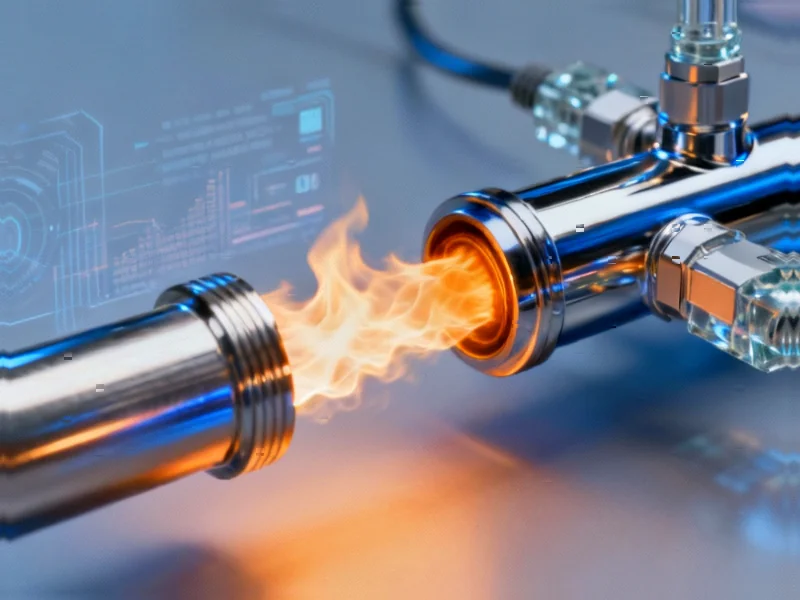Revolutionizing Clean Hydrogen Through Nuclear Innovation
Robert Gordon University (RGU) has secured an £800,000 grant from the Engineering and Physical Sciences Research Council (EPSRC) to accelerate the development of clean hydrogen production technology that utilizes waste steam from nuclear energy facilities. This significant funding represents a major step forward in the quest for sustainable energy solutions and positions RGU at the forefront of hydrogen research innovation.
Table of Contents
Cutting-Edge Technology Development
The research team, led by Professor Nadimul Faisal at RGU’s School of Computing, Engineering and Technology (SoCET), will focus on advancing solid oxide steam electrolysers (SOSE) technology. These systems operate at extremely high temperatures between 600-900°C and represent one of the most efficient methods for producing clean hydrogen using electricity and heat from renewable and nuclear sources.
Professor Faisal emphasized the project’s significance, stating: “Hydrogen is central to achieving the UK’s net-zero goals. This investment allows us to push forward the science and engineering needed to make solid oxide steam electrolysis commercially viable, while creating new opportunities for sustainable innovation in partnership with industry.”
Building on Previous Breakthroughs
The current project, known as METASIS 2.0 (UKRI3156), builds upon previous research where SoCET researchers designed a specialized tubular cell capable of withstanding the extreme temperatures required for SOSE systems. This continuity of research demonstrates RGU’s growing expertise in hydrogen technology development.
Professor Mamdud Hossain of RGU highlighted the institution’s research trajectory: “RGU has built an excellent reputation in hydrogen research, both applied through a number of Knowledge Transfer Partnerships and increasingly on curiosity-driven research as evidenced by the back-to-back EPSRC grants.”
Collaborative Research Ecosystem
The METASIS project represents a significant collaborative effort involving multiple prestigious institutions:
- University of Surrey – contributing innovative electrolyte composites
- Aston University – bringing additional research expertise
- National Nuclear Laboratory (NNL) – providing nuclear industry insight
- Over a dozen additional partners from industry and academia
Dr Bahman Amini Horri from the University of Surrey explained their technological contribution: “We are developing the next generation of steam electrolysers to produce sustainable hydrogen in an efficient and affordable way. The technology uses innovative heterogeneous electrolyte composites recently developed at the University of Surrey, which are integrated into coating layers applied to traditional porous ferritic steel tubes, serving as a cost-effective manufacturing method.”
Nuclear Energy’s Role in Decarbonization
The research specifically addresses how nuclear power facilities can contribute to hydrogen production, utilizing both the heat and electrical power generated by nuclear reactors. This approach represents a significant advancement in maximizing the value of nuclear energy infrastructure while supporting decarbonization efforts.
Dr Mark Bankhead from the United Kingdom National Nuclear Laboratory expressed enthusiasm for the project’s potential: “We at UKNNL are looking forward to supporting the team and to encourage the development of low-TRL technologies that could increase the potential of new nuclear to drive decarbonization. Having supported the team in the previous grant award, we are delighted to have the opportunity to continue this potentially groundbreaking research that could utilise both the heat and electrical power from a nuclear reactor to produce low carbon hydrogen fuel.”, as covered previously
Strategic Importance for UK Energy Goals
This research initiative aligns directly with the UK’s ambitious net-zero targets and represents a crucial step in developing commercially viable hydrogen production methods. By leveraging existing nuclear infrastructure and developing more efficient electrolysis technology, the project addresses both technical and economic challenges in the hydrogen economy.
The continued funding from EPSRC demonstrates confidence in RGU’s research capabilities and the potential impact of this technology on the UK’s clean energy landscape. As hydrogen continues to gain prominence as a key clean energy carrier, innovations like those being developed at RGU could play a pivotal role in shaping the future of sustainable energy production.
For more information about RGU’s research initiatives, visit their official website or read about their recent hydrogen production breakthroughs.
Related Articles You May Find Interesting
- Minnesota’s Northland Enters Data Center Arena with Major Hermantown Campus Appr
- Barloworld Nears Delisting as Newco Secures 90.7% Controlling Stake
- Tesla’s Q3 Performance Reveals Strategic Pivot Beyond Traditional Automotive Met
- Software Export Controls Emerge as New Frontier in US-China Tech Decoupling
- Ohio Data Center Proposal Withdrawn Amid Community Opposition in Preble County
References
- https://www.rgu.ac.uk/
- https://www.rgu.ac.uk/news/news-2024/6855-rgu-researchers-make-steam-based-hy…
This article aggregates information from publicly available sources. All trademarks and copyrights belong to their respective owners.
Note: Featured image is for illustrative purposes only and does not represent any specific product, service, or entity mentioned in this article.



